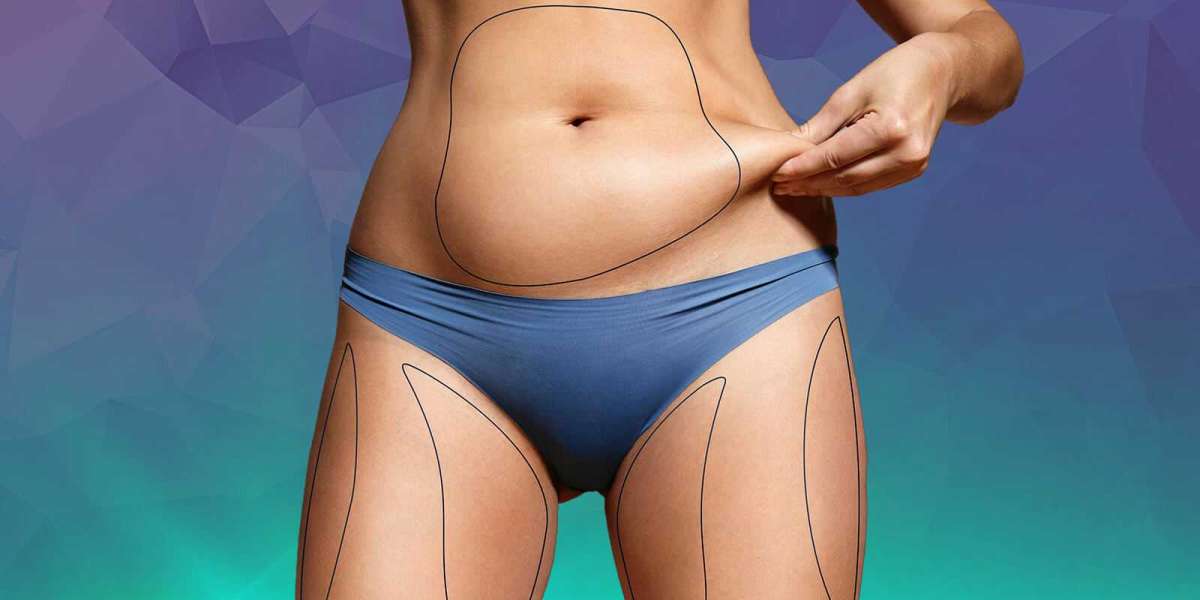Liposuction is a popular cosmetic procedure that helps reshape specific areas of the body by removing excess fat deposits. While the surgery itself is important, what happens afterward is crucial to ensure proper healing and long-lasting results. If you're considering liposuction, understanding the post-operative care process is essential. In this guide, we’ll cover what you need to do after your liposuction procedure to maximize your recovery and achieve the best possible results.
Immediate Post-Surgery Care
After your liposuction procedure, it’s normal to experience some swelling, bruising, and discomfort. The level of discomfort can vary depending on the extent of the procedure and the areas treated. Your surgeon will likely prescribe pain medication to help manage any discomfort in the first few days. Following these instructions closely is key to minimizing pain and promoting recovery.
You'll also be required to wear a compression garment, typically for several weeks after surgery. This helps reduce swelling and supports the treated areas as they heal. Make sure to wear the garment exactly as prescribed by your surgeon, as it plays a critical role in your body’s recovery process and helps your skin conform to its new shape. Avoid taking it off unless permitted, and consult your surgeon for specific advice on how long you’ll need to wear it.
Managing Swelling and Bruising
Swelling and bruising are common side effects after liposuction and can take some time to subside. It’s essential to manage these symptoms to ensure optimal healing. Keeping your body elevated when resting, especially the treated areas, can help reduce swelling. For instance, if liposuction was performed on your legs or abdomen, consider sleeping with pillows under your legs to keep them raised.
To help reduce swelling, drink plenty of water and avoid salty foods, as sodium can contribute to water retention. Gentle walking, once approved by your surgeon, is also recommended to improve blood circulation and promote healing. Strenuous exercise, however, should be avoided for several weeks.
Taking Care of Incisions
Liposuction incisions are typically small, but it's crucial to take care of them properly to prevent infections. Your surgeon will likely provide specific instructions on how to clean the incision sites and may prescribe antibiotics to avoid infections. It's important to keep the incision areas dry, except when instructed to shower, and avoid applying lotions or ointments unless directed by your surgeon. Proper incision care will also help minimize scarring.
What to Expect in the First Few Weeks
Recovery times vary depending on the individual and the extent of the procedure, but most patients can expect to return to light activities within a few days to a week. It's important to avoid any strenuous activity, including exercise, for at least two to three weeks post-surgery. Make sure to listen to your body and follow your surgeon’s advice regarding when it's safe to resume normal activities.
During this time, you may also notice that your final results aren't immediately visible due to swelling. It can take several weeks, or even a few months, for the swelling to fully subside and for the final contours of your body to become evident. Patience is essential during this phase.
Maintaining Your Results
While liposuction removes fat cells from targeted areas, maintaining the results of your procedure requires a commitment to a healthy lifestyle. This includes following a balanced diet and engaging in regular physical activity. Liposuction isn't a weight-loss solution, but it can help contour your body and improve your overall shape. However, significant weight gain after the procedure can diminish the results, so it’s important to maintain a stable weight through healthy habits.
If you’re considering Liposuction in Islamabad, understanding the recovery process is critical to achieving the best results. Following the correct aftercare steps, including wearing compression garments, managing swelling, and avoiding strenuous activities, will help you recover smoothly and maintain the new shape of your body.
When to Contact Your Surgeon
It’s essential to keep an open line of communication with your surgeon during the recovery process. If you experience any unusual symptoms such as excessive pain, fever, or signs of infection, contact your healthcare provider immediately. Your surgeon will provide detailed instructions on when to schedule follow-up appointments to monitor your healing progress.
Additionally, if you have any concerns or questions during the recovery process, don’t hesitate to reach out to your surgeon. Early intervention can prevent complications and ensure a smooth recovery.
Final Thoughts
Proper post-operative care is vital for achieving the best possible outcome from your liposuction procedure. By following your surgeon’s advice, wearing compression garments, and making healthy lifestyle choices, you can enjoy long-lasting results. It’s important to remember that liposuction is not a quick fix for weight loss but rather a body contouring procedure.
If you're considering this procedure, Royal Cosmetic Surgery Clinic in Islamabad offers expert care and comprehensive post-operative guidance to ensure you achieve your desired results with a smooth recovery process. Following the recommended steps after liposuction will help you get the most out of your surgery and feel more confident in your new body.







